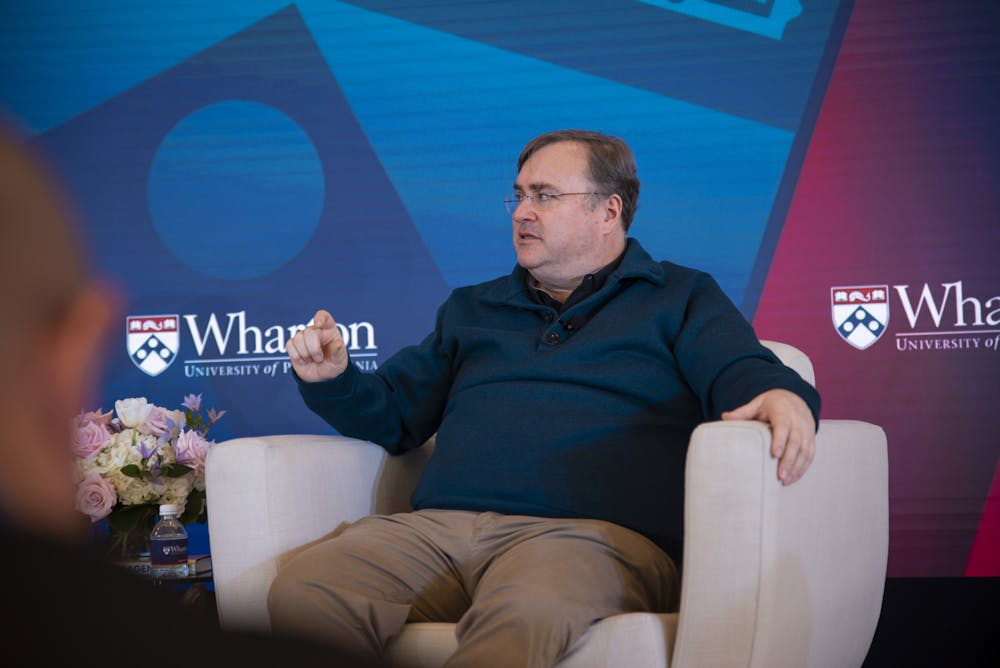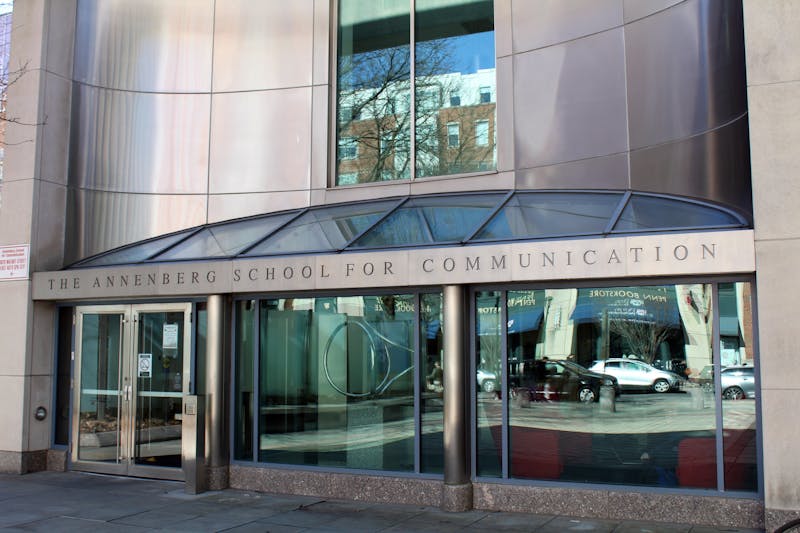
Co-founder of LinkedIn Reid Hoffman sat down with Wharton School Dean Erika James for a conversation on Jan. 27 to discuss the future of artificial intelligence as part of the Tarnopol Dean’s Lecture Series.
Titled “Embracing AI with Vision and Purpose,” the event drew 165 attendees in person and over 2,000 participants via a livestream on LinkedIn. Dedicated to spotlighting global leaders, the Tarnopol series serves as a platform for addressing critical societal issues, including AI’s potential and ethical implications.
Hoffman, who is featured in Wharton’s AI Leadership Program, introduced the concept behind his book “Superagency: What Could Possibly Go Right with Our AI Future,” which explores AI as a collective force that can amplify the potential of humans. Drawing comparisons to past technological shifts like the printing press and automobiles, Hoffman noted that current fears about AI’s impact mirror those of earlier innovations.
“The printing press was once feared to destroy human cognition, yet we have nothing of modern society without it,” Hoffman said to the audience. “The question is not just about the superpowers, but how you deliver them responsibly.”
While optimistic about AI’s possibilities, Hoffman acknowledged public skepticism, which James attributed to the abstract nature of AI in relation to more tangible technologies. Hoffman urged his audience to overcome their mistrust by engaging with AI tools directly, asking audience members to convert their challenges into opportunities. He added that certain tools like ChatGPT can help shift the public away from skepticism and toward curiosity and empowerment.
Hoffman also emphasized the role of educators and institutions like Penn in fostering “super agency” within their own communities. He described the shift from “being AI-fearful, AI-skeptical, and AI-uncertain, to becoming AI-curious.”
To encourage a mindset of curiosity, Hoffman shared his approach to introducing hesitant individuals to AI.
“I’ll pull out my phone, turn on the audio mode, and demonstrate a few prompts tailored to their interests,” he said. “Then I’ll say, ‘Now it’s your turn.’ You don’t need to read ‘AI for Dummies’ before trying it out.”
Hoffman concluded his discussion with the ethics of AI usage. He stressed the importance of transparency and oversight throughout AI development, acknowledging risks like misinformation. Both Hoffman and James highlighted the need for responsible leadership to ensure AI benefits are distributed equitably and serve as tools for inclusion and not division.
Hoffman praised Wharton’s Accountable AI Lab for equipping students to think critically and ethically about AI. He encouraged Penn students and community members to approach AI with an open mindset and emphasized that active participation is essential for shaping the impact of technology.
After the event, Brianna Gurrell, a first-year Wharton MBA student, told the DP that AI could bridge gaps in less developed regions.
“Coming from Jamaica, where AI isn’t as developed, I see its potential as a positive,” she said. “Encouraging my mom to use tools like ChatGPT has been rewarding — she’s already using it to study and see how accessible AI can be.”
Hoffman also spoke privately to Alpha Omega Epsilon, a sorority for women in engineering and technical sciences at Penn, after the event.
Engineering junior and Alpha Omega Epsilon President Ashley Tang reflected on Hoffman’s remarks to the DP.
“He emphasized that AI isn’t here to take our jobs — it’s here to help us do them more efficiently,” she said.
The Daily Pennsylvanian is an independent, student-run newspaper. Please consider making a donation to support the coverage that shapes the University. Your generosity ensures a future of strong journalism at Penn.
Donate












